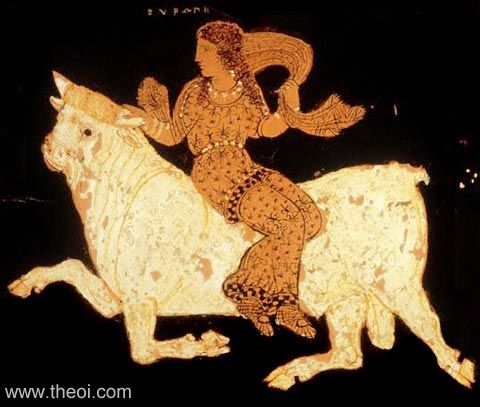Cadmus
Credited with establishing Thebes, a city that would echo through Greek myths and legends, Cadmus laid the groundwork for a powerful kingdom destined for greatness and turmoil in equal measure. His story, steeped in tales of divine intervention, quests, and the birth of a civilization, makes him a fascinating figure in Greek mythology.

Parents: Agenor and Telephassa
Consort: Harmonia
Siblings: Phoenix, Cilix and Europa
Children: Ino, Polydorus, Autonoe, Agave, Semele and Illyrius
Born into Phoenician royalty, son of King Agenor and Queen Telephassa of Tyre, he had the blood of rulers coursing through his veins. His siblings, Phoenix, Cilix, and Europa, were figures of myth themselves. But fate had something grander in store for Cadmus.
He’s credited with bringing the Phoenician alphabet to Greece, a gift that revolutionized communication and laid the foundation for the rich literary tradition that would blossom there. The Greeks, recognizing the power of this new system, adapted it to their own tongue, forever linking Cadmus’ name to the very alphabet we use today. In essence, Cadmus became a bridge between cultures, a bringer of knowledge and the architect of a city that would forever be intertwined with Greek mythology.
Finding Europa
His sister, Europa, had been whisked away by Zeus, the king of the gods. Unable to challenge a god’s will, Cadmus, alongside his brothers Phoenix and Cilix, embarked on a quest to find her. Their search led them across the Mediterranean, eventually landing on the mystical island of Samothrace. There, accompanied by his mother Telephassa and his nephew Thasus (who would later lend his name to a nearby island), Cadmus encountered Harmonia, a beautiful goddess who would become his wife and a pivotal figure in his destiny.

Consumed by the desire to find Europa, Cadmus consulted the oracle of Delphi, a revered source of prophecy. The answer he received, however, wasn’t what he’d hoped for. The oracle instructed him to abandon his search for Europa and instead follow a unique cow – one marked with a crescent moon on its side. This peculiar creature, the oracle declared, would lead him to his true destiny. Following the cow’s path, Cadmus arrived in a fertile valley in Greece. When the cow finally lay down to rest, he understood the oracle’s cryptic message. This was the place where he was meant to build his legacy.
Founding Thebes
Intending to make a sacrifice to Athena, Cadmus sent his companions to fetch water from a nearby spring. But a monstrous guardian, a dragon with a deadly presence, resided there. A fierce battle ensued, and Cadmus emerged victorious, slaying the dragon. Following Athena’s guidance, he sowed the dragon’s teeth into the earth. From these macabre seeds sprouted warriors, the terrifying Spartoi, locked in a deadly fight amongst themselves. Cadmus, forced to act, intervened, ending the carnage. With the remaining five Spartoi, he built the city walls, forever linking its foundation to both creation and destruction.

However, the dragon wasn’t just any creature. It was under the protection of Ares, the war god, who demanded an eight-year penance from Cadmus for taking its life. After this servitude, a grand wedding awaited Cadmus. He married Harmonia, a goddess who would become his queen. Their celebration, attended by the divine, was a spectacle. But amidst the festivities lurked a curse. Harmonia received a magnificent necklace, a gift from Hephaestus, the god of crafts. This “Necklace of Harmonia,” as it was known, was more than an ornament; it was a harbinger of misfortune. It brought a wave of ill fortune upon Cadmus’ family and Thebes itself.
Despite the growing darkness, Cadmus and Harmonia had children – Ino, Polydorus, Autonoe, Agave, Semele (mother of the wine god Dionysus), and Illyrius. Yet, the weight of the curse grew heavy. Eventually, yearning for an escape from the relentless misfortune, Cadmus wished for a transformation – to shed his human form and become a serpent. The gods, perhaps in a twisted sense of mercy, granted his wish. Scales began to sprout on his skin, and Harmonia, choosing to share his fate, was also transformed. Together, they left Thebes behind, forever entwined in their serpentine forms, a tragic end to the founder of a legendary city.
